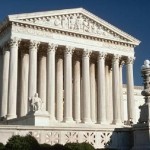New Controversies in Wisconsin Administrative Law
Administrative law is enjoying a moment in the sun. Take, for example, the attention recently paid to the subject by the United States Supreme Court, which in a series of opinions (Loper Bright, Corner Post, andJarkesy) marked out a new path forward with respect to important aspects of federal administrative law. This post concerns noteworthy developments in the same field in Wisconsin. At both the federal and state levels, it has become clear that modern administrative law cases often involve disputes over very significant and substantive regulatory power, even when cloaked in what may seem to be procedural minutiae.
in recent years. I explored the topic in a series of writings, beginning in September 2017 with a post titled “The Quiet Revolution in Wisconsin Administrative Law.” My purpose was to point out what I perceived as a significant makeover in longstanding principles of administrative law in the state, shifting power away from agencies and toward courts and the legislature. Eight years have passed since then, and while the ground has certainly shifted, the fundamental questions remain the same, relating to the uneasy balance of power between Wisconsin agencies, the Wisconsin state legislature, and Wisconsin courts.
The Wisconsin Supreme Court has twice acted to counter the trends I noted in the original post, restoring some of the discretion Wisconsin agencies historically enjoyed. First, as I described in a 2021 post, the court decided two cases (both captioned Clean Wisconsin v. Wisconsin Department of Natural Resources (2021 WI 71 and 2021 WI 72wi)) to address the scope of Wis. Stat. § 227.10(2m). That statute provides that no agency may implement any “standard,” “requirement,” or permit condition unless the condition has been “explicitly required or explicitly permitted’ by statute or by rule. The Clean Wisconsin cases turned on a question of statutory interpretation: whether “explicit” means “specific,” in other words, whether under § 227.10(2m) the agency’s contested authority must be spelled out via “literal enumeration or verbatim mention” of the conditions in a statute or rule, or whether the authority must simply be “expressly conferred and clear.”
The court concluded that even when no statute or rule spells out verbatim the agency’s authority to impose certain disputed permit conditions, an agency “may rely upon a grant of authority that is explicit but broad when undertaking agency action.” Such broad grants of authority, the court found, comply with the requirements of § 227.10(2m). For example, statutes conferring on the Wisconsin Department of Natural Resources (WDNR) “general supervision and control over the waters of the state” and all “necessary powers” to protect the waters of the state, provided sufficiently “explicit” authority for WDNR to impose specific conditions related to groundwater monitoring on a permitted well.
Most recently, this summer the Wisconsin Supreme Court issued its opinion in Evers v. Marklein II, striking down the authority to pause, object to, or suspend administrative rules held by the powerful legislative Joint Committee for Review of Administrative Rules (JCRAR). This was another power shift that I discussed in my 2017 post. The basis for the court’s new ruling was a rather technical matter: JCRAR’s authority to block, suspend, and object to administrative rules was tantamount to legislative action, and therefore failed the constitutional requirements of bicameralism (a bill must pass both houses) and presentment (the bill must be provided to the governor for signature). Technical grounds notwithstanding, Evers v. Marklein II appeared to significantly reduce the legislature’s power to check agency action.
But rather than putting things to rest, the ruling touched off a new round of political maneuvering. First, Democratic Governor Tony Evers sought to finalize a set of new administrative rules without first submitting them to the JCRAR, citing the court’s opinion. Republican leaders responded with a plan to order the Legislative Reference Bureau not to publish any rules prior to review by legislative standing committees, arguing that the court’s opinion removing some authority from the JCRAR did not eliminate review of administrative rules by standing committees. The LRB director agreed, telling a media outlet that “If [the Joint Committee on Legislative Organization] so directs, the LRB will not finalize or publish any proposed administrative rules that have not completed standing committee review.” Many of the rules – which concern various aspects of important state policies – remain in limbo for now.
While the debate over the authority of Wisconsin administrative agencies currently pits the Republican legislature against the Democratic executive, there is always the possibility that those positions could be reversed in the future – just as has happened at the federal level, with a Republican-led EPA now seeking to impose the most ambitious deregulatory agenda in history. For that reason alone, this delicate balance of authority should be examined on more than partisan political terms.


